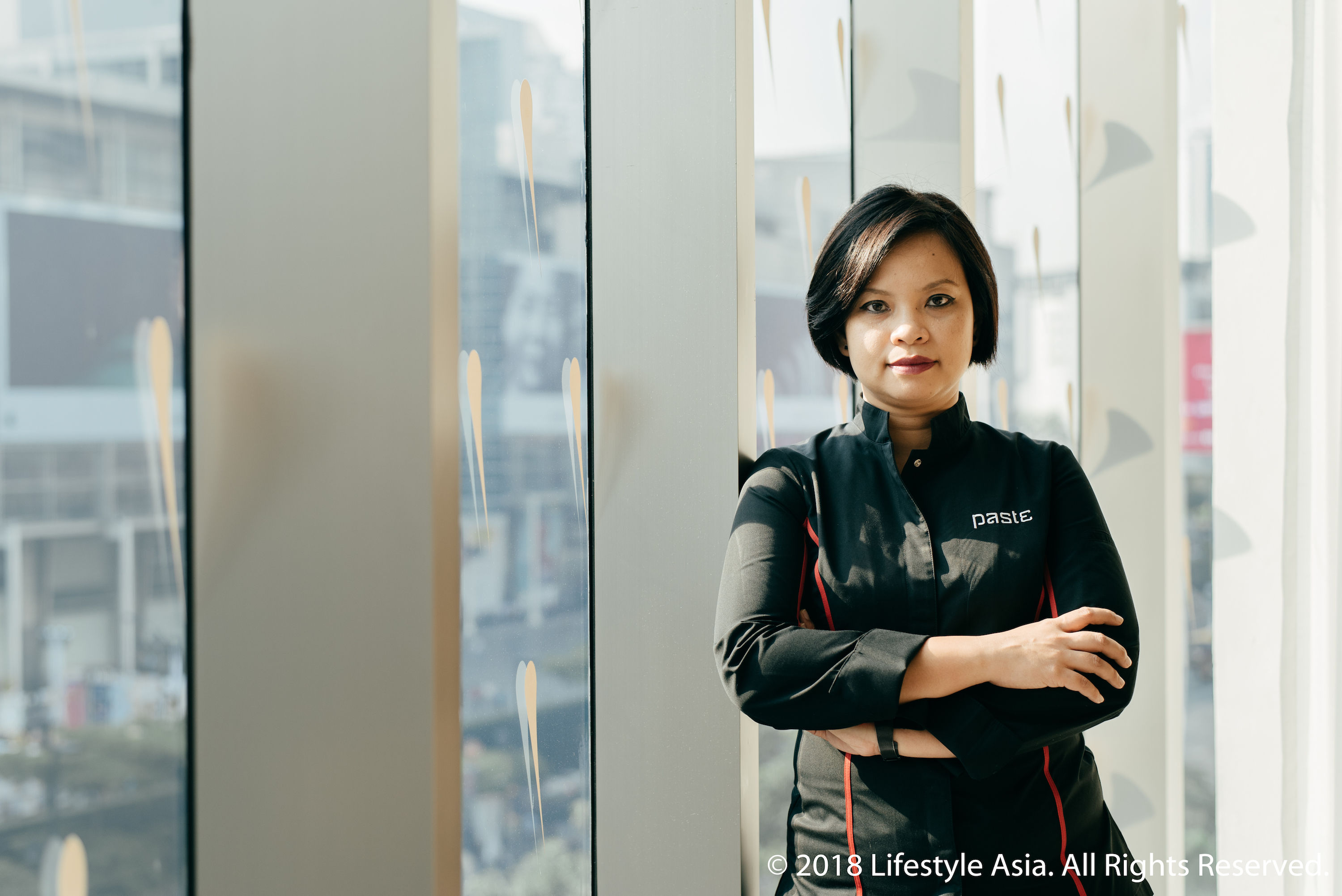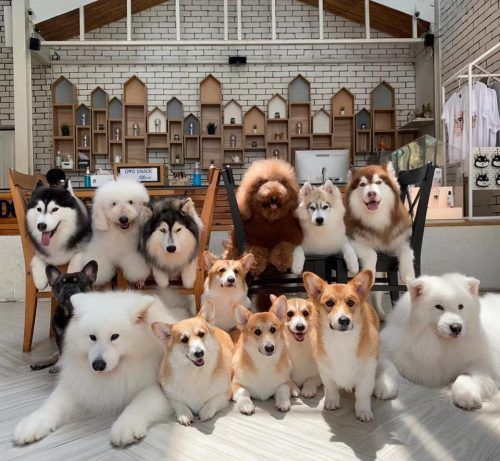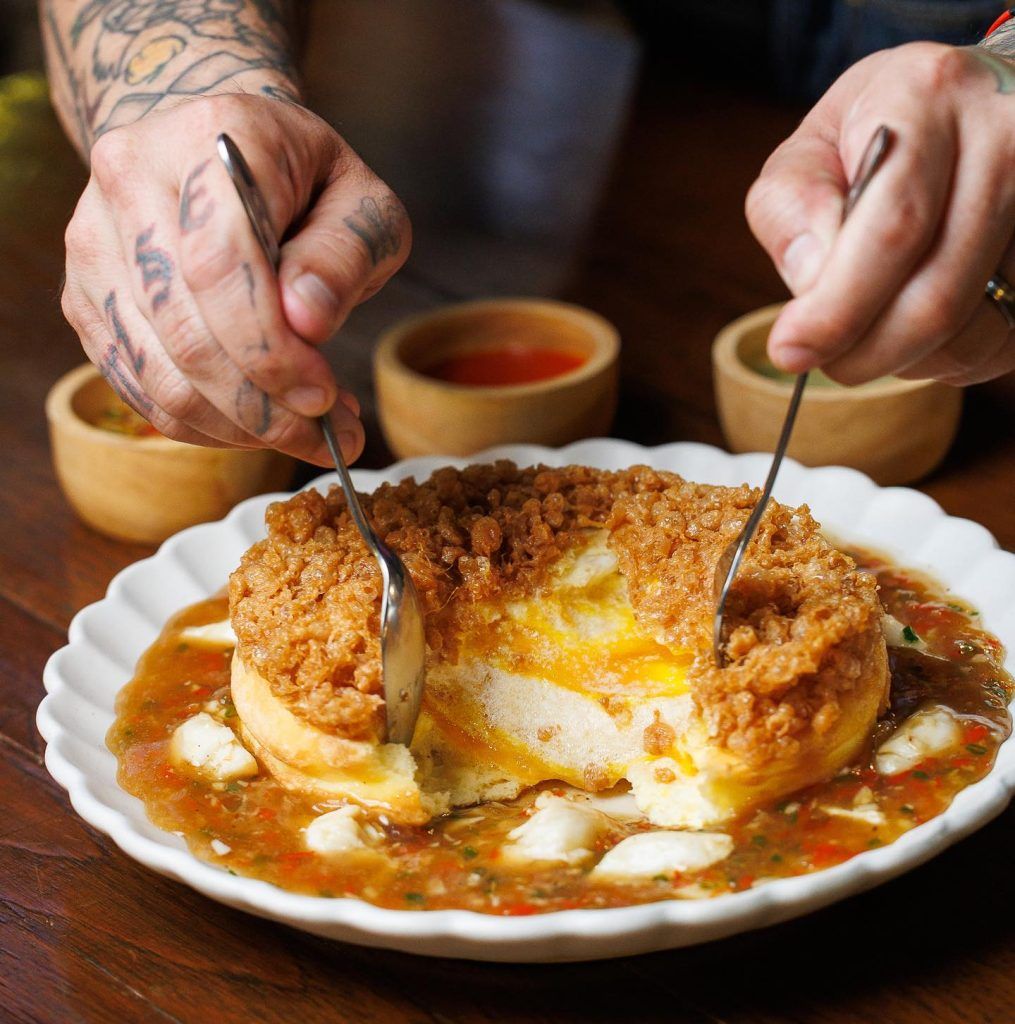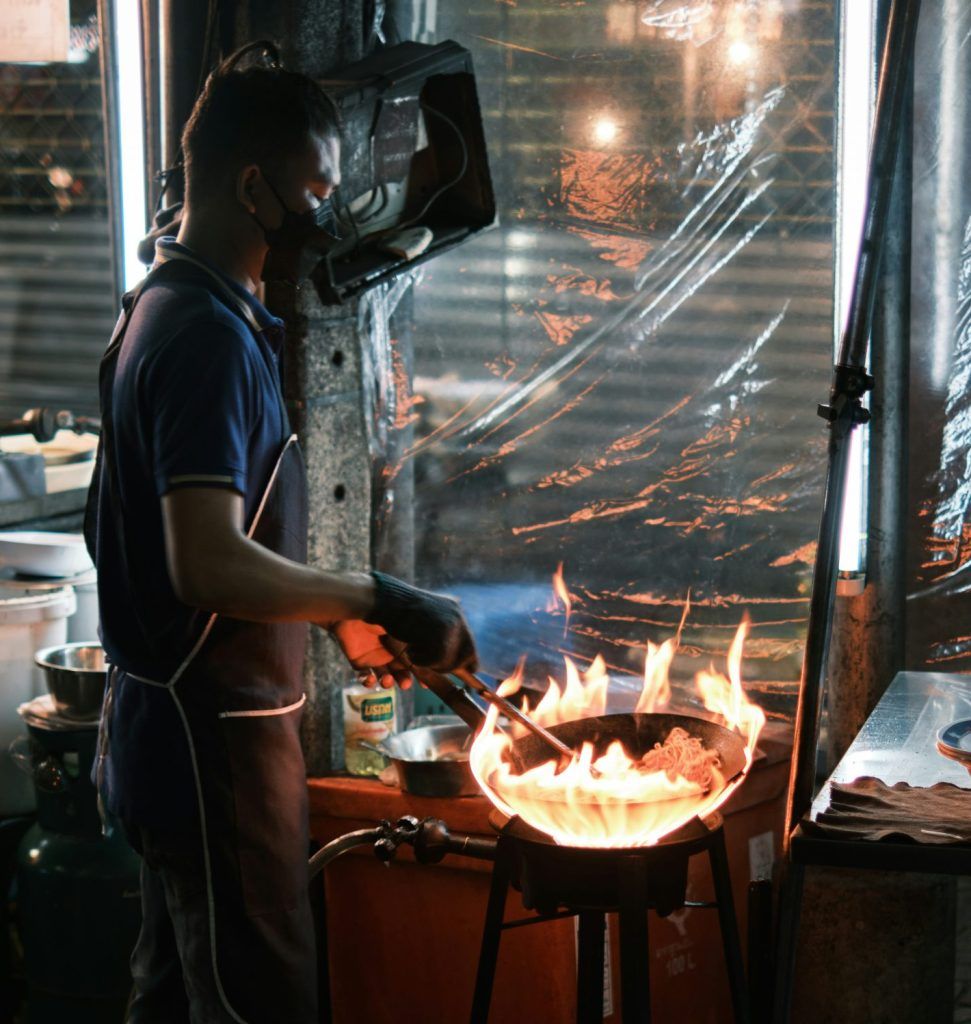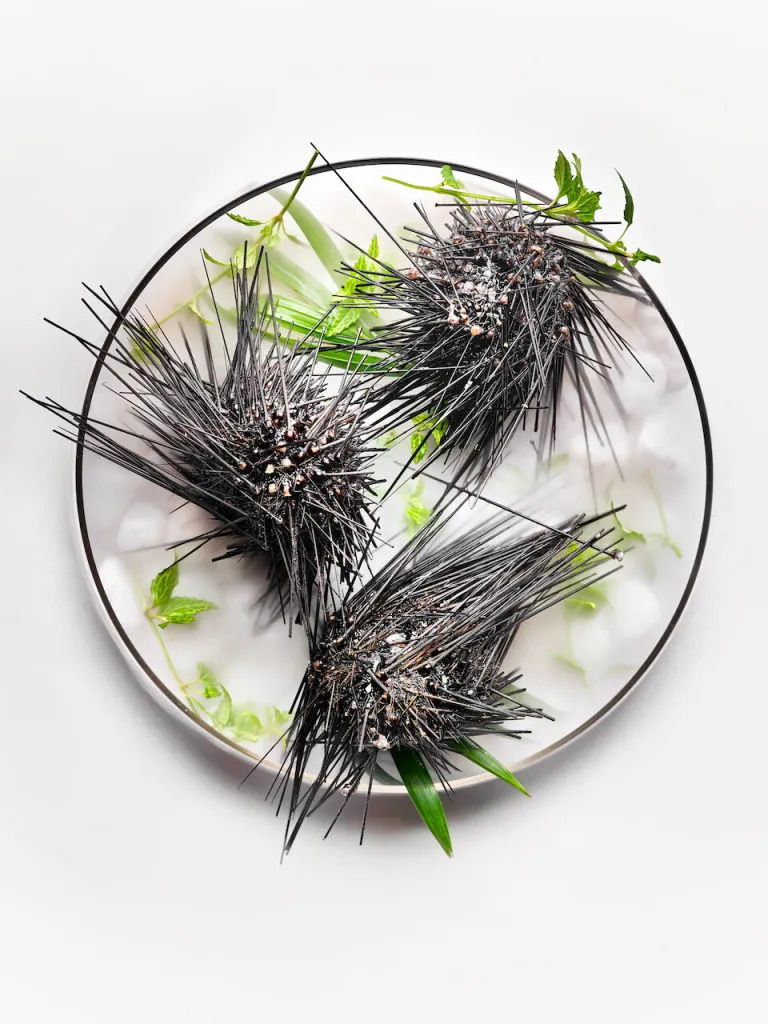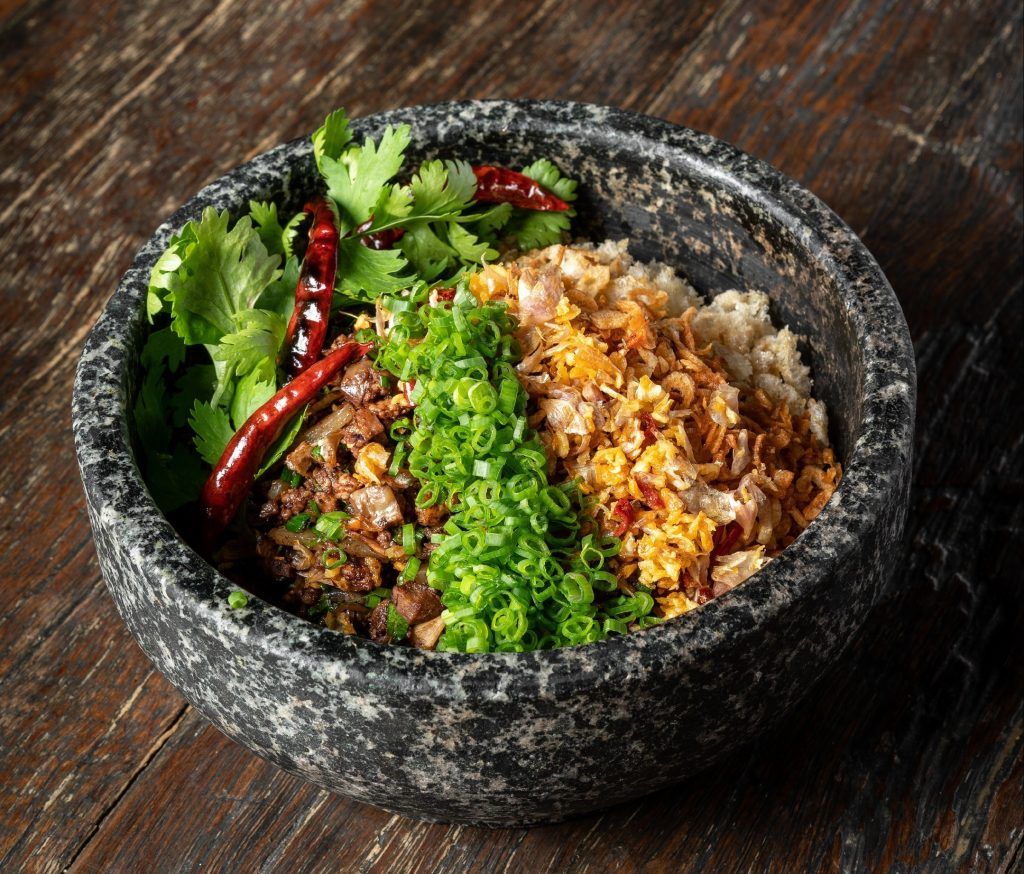Asia’s 50 Best Restaurants 2018 may be done and dusted, but we are still stoked about Asia’s Best Female Chef from Bangkok, Paste‘s chef Bongkoch ”Bee” Satongun, who received the award at the ceremony on 27 March.
Renowned for her commitment to traditional Thai cooking, Chef Bee looks to centuries-old Thai cookbooks for references to resurrect long-forgotten recipes and rare ingredients. The award-winning chef began working at her family’s local restaurant before she opened Paste in 2015 with her Australian-born husband and fellow chef Jason Bailey, which was awarded its first Michelin star last year.
Through drawing inspiration from royal Thai cuisine and its secrets, Chef Bee has rediscovered the traditional technique to make authentic Thai curry paste, which are made in-house at Paste. In addition to sourcing fresh produce from local growers, the Thai chef also insists that the food is smoked with lychee wood, coconut husks and coconut meat, creating dishes that are defined by their original flavours, contrasting textures and attention to detail.
We recently checked out the Michelin-starred restaurant and took the chance to sit down with Chef Bee, who just came back from the Asia’s 50 Best Restaurants award ceremony in Macau. Here, she discusses with us her endeavour to preserve ancient Thai cooking techniques, what being named Asia’s Best Female Chef means to her and exciting next steps for Paste.
I think with the award does come responsibility. I didn’t expect [to be awarded] ‘Asia’s Best Female Chef’ — it really was a surprise for us. After that, I know people will come [to Paste] with more expectations, but it is a good opportunity to introduce Thai food to the bigger audience because the Thai food that we do here is 80% traditional and 20% creativity that we put into the food, so it’s not the same as other restaurants. With this award, we can show people that Thai food can go to the fine dining table and reach another level.

Try to cook traditional food that has history and culture, and study from the root first, so you know exactly what it’s meant to be. If you change the food too much, it will lose its soul.
The most talked-about dish at Paste is the smoky crab curry. Normal curry usually has curry paste, coconut milk, seasonings and maybe meat. Our smoky crab curry dish has brought curry to a new dimension.

I think it is the watermelon salmon. This dish has been cooked since King Rama I and it has been served at Emerald Buddha Temple ceremony as one of the 11 dishes. The original one is cooked with fresh water fish and we still keep the same method of cooking the fish. The fish is cooked in the pot in low heat for a long time, and after that you mix it with sugar, salt and garlic powder. So we still follow the same method from the traditional recipe, but we changed the fresh water fish to salmon and the presentation. Traditionally, they put fish and sugar together in the bowl, and then watermelon on the side, but we put them all into the bowl like a salad and we add some fresh herbs in there and finally add the salmon roll into the dish. It’s a balanced, refreshing dish with multiple textures.
We study in-depth the recipe of each dish we cook. If we want to cook massaman [curry], we don’t just copy from the traditional book to our recipe because in the modern days, people’s palate has changed. For example, if you want Japanese, it’s there. If you want French, it’s there. So people’s palate has developed into something different from the old days. Our dishes have to adjust for that as well, without losing the traditional flavour. That’s why we study from the root to see what we can change and adjust, and then put them into our cooking. We also bring back forest herbs and introduce them to our customers. We use about 20 varieties of Thai herb and flowers from all over the country.
We do change up the menu every 3-4 months because we have many regulars and we need to keep pushing ourselves so they don’t come back to the same old menu.

I think more and more chefs start to focus on the food itself these days. You can see that more standalone restaurants are popping up and people are more open to try something different. Nowadays, you really need to understand what you’re doing because customers have more knowledge [about the restaurant] before they come. And with that information available, it comes with more expectations as well, so everything has to be rounded up like a package.
It is actually our dream to have our own cooking school, where we can teach underprivileged Thai women from 30 years old and up, whose main responsibility is to look after their family. If I could transfer my knowledge and cooking skills to them, it may give them better [job] opportunities. After the training, they can work here [at Paste] or other restaurants. I’m going to teach them myself so they’ll have an in-depth understanding of cooking techniques. Usually, these women get paid less because they don’t have the opportunity to receive proper education, so with the skills they learn from Paste, they can earn more money and support their family.
Paste, 3/F, Gaysorn, 999 Ploenchit Rd., Lumpini, Bangkok, +662 656 1003

